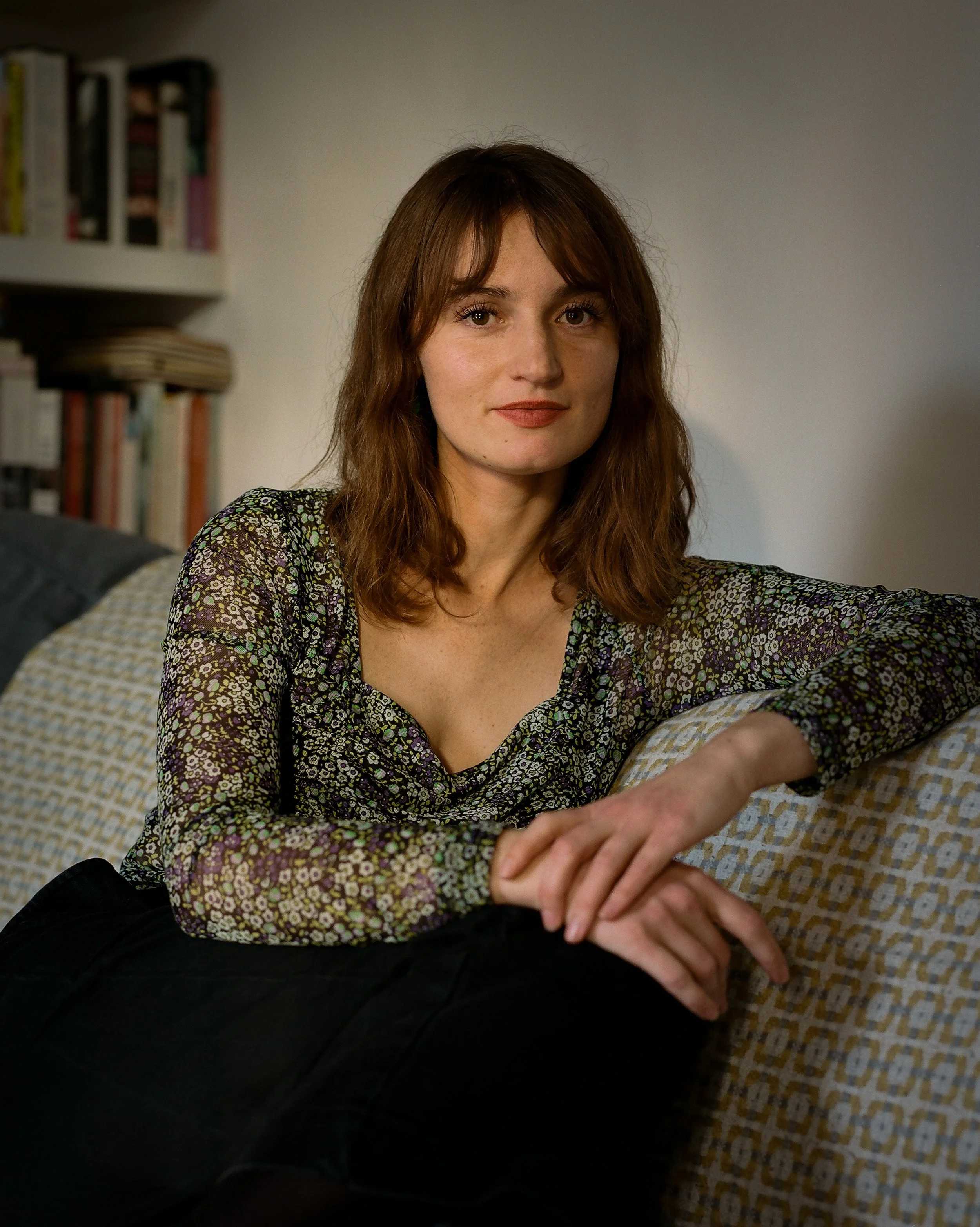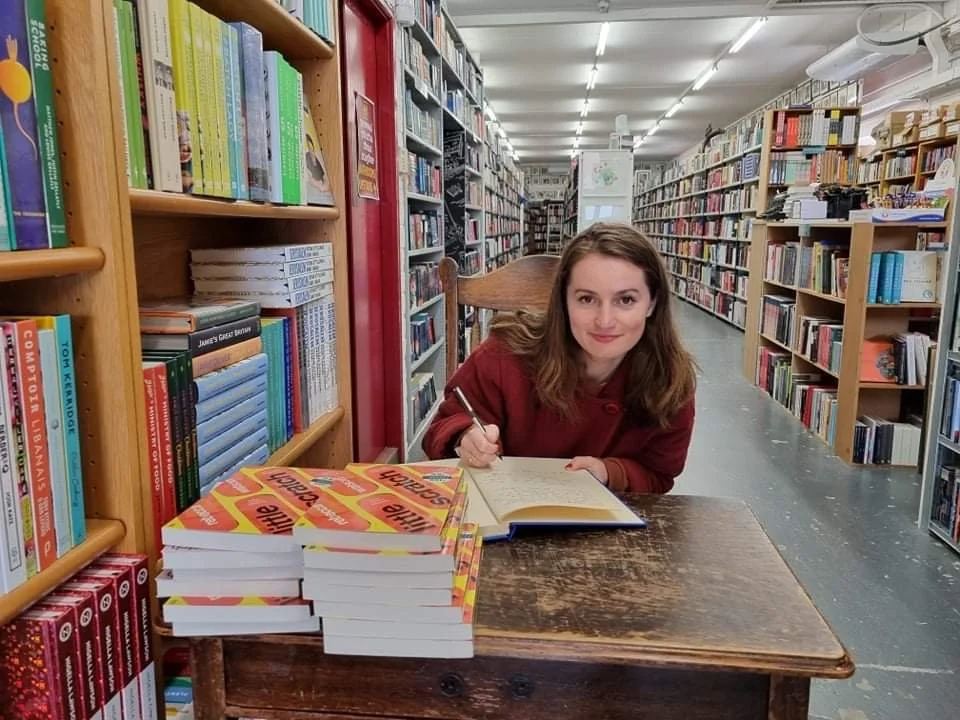Rebecca Watson
With her second novel I Will Crash released earlier this summer, author Rebecca Watson talks to us about the unusual form of her writing, her first novel little scratch being adapted for the stage and getting into (and out of) the heads of her characters.
When did you begin writing? When did you know it was something you wanted to take seriously?
It’s kind of a hard one to place, I guess - I was always writing fiction as a teenager, but I think that writing back then was a bit more sincere, less kind of “knowing”. I think I started writing more ambitiously, or with the intention of committing to a book, probably when I was in my early twenties, maybe a little earlier. I actually wrote something earlier than little scratch which never saw the light of day, but that was the point where I thought “Maybe I am going to try and do something”. BUt it’s definitely always been there in some kind of live form, it’s just that it’s grown into something that I’ve allowed to take seriously - I think even when I was writing little scratch I didn’t realise it was going to be something that was published, I just wanted to write it!
little scratch is written in such a unique form, being essentially the character’s inner monologue - did you always intend to write it this way?
Yeah, the beginning of it really was the form - it began with the question, how would you write present-tense, first-person immediacy, like trying to displaying the layers, the intricacies of a live moment. In asking myself that question, the form kind of arrived as an answer. So those layers of time, self, interiority, were the sparking beginnings of little scratch - really, in a kind of strange way, the motivations of the character, what she was going to revolve around came afterwards, from me hearing what the voice sounded like.
The novel has been adapted for the stage - how was such an unusual novel adapted, and how involved were you with the production?
It was first on the stage in 2021, then it was brought back at the beginning of last year. It was adapted by a playwright called Miriam Batty, and it was an arrangement with the director, Katie Mitchell, who’s this kind of legend across Europe - when I saw an email from her wanting the rights to it, I was like “Sure mate, take it, no more questions asked!”. I was involved quite a lot, although it was a strange adaptation in that there were no new words, it was essentially a condensed version of the novel, performed by four different characters who all represented her, they stood on the stage together and they all had these different psychological associations, and between those they’d pick up parts of her and parts of her day. It was amazing - I was involved with providing the backstory and explanation for the actors, I took them on a couple of trips to show them where I imagined the character’s commute and stuff like that. A lot of it though was just letting them take charge and seeing what they did, and the first time I saw it in its entirety was in the theatre, when it had begun, so it was kind of high stakes in a way! It was a very affirming process - there’s something about having your words shown back to you in a different form, and in a public space as well, because as a writer you don’t experience how your readers experience the work, but being in a theatre and hearing people react to it, laugh at jokes, seeing that atmosphere when an audience is held for something, being there for that was a pretty extraordinary experience to have.
Your latest novel, I Will Crash, was released this summer. What was the origin of this story, and did you always want it to be written in the same way as little scratch?
I think I Will Crash began as I was thinking about the notion of narrative, the kind of stories we tell ourselves about our lives and our pasts, how we explain ourselves to other people. It was circling around the idea of how fragile that is - we depend on these stories and our memories, and then I started thinking about what would happen to a character if they stopped believing in those stories, if everything we take as kind of the scaffolding of our life and how we translate ourselves to other people just fell away. I had this scene in my head, which is now the prologue of the book, which is Rosa, the protagonist, opening the door to her brother and not being able to see out that moment - her brother turning up unexpected, presumably to try and reunite them, and her just having to end the moment, close the door, not being able to endure it. I guess the question I had to determine was what could have happened, what would the story be that the only way she could endure that moment would be to end it? And then the discovery was in the writing of the novel.
Has anything in your own life informed either Rosa in I Will Crash or the protagonist of little scratch?
I don’t think so - they feel like very particular, exterior people to me, and between the two of them they feel very different. It’s funny - I guess it’s easy to connect them, being young-ish women in the contemporary world, people might think “Well, are they in any way you?”, but they do feel very different to me. A lot of it is getting into the heads of those characters - actually the complication after I finished writing little scratch and before I started I Will Crash was how to enter a new person’s head, because I’d learnt the little scratch protagonist’s thought patterns so closely, and once you get into that zone, once you’re immersed in that it feels so organic and natural, so to end that and become someone else is in itself a kind of task. It doesn’t go onto the pages, but it is something I have to get past.
Do you find it difficult to get into the mindset of a character at all?
I think because so much of what I do is about interiority - getting into the literal headspace of a character - I think once I’ve unlocked that, the rest just follows so closely, it’s like opening a door. The initiating task is getting in that head. When I’m in the midst of a project, I can find myself taking on that character’s thought patterns, and I have to really work to get myself out of that, and stop perceiving or doing things in the mode of that character!
Have you read anything recently that you’ve particularly enjoyed?
I’ve really liked Jente Posthuma’s What I’d Rather Not Think About, which was shortlisted for the Booker Prize - it’s very spare, reflective prose, thinking about a brother who’s no longer there. And it’s a twin relationship, which I found particularly interesting because I myself am a twin, and it’s not a relationship I feel I read about much in fiction. I was paired with her for a conversation at the Edinburgh Festival in August - I read the book first to familiarise myself with her work - and I can definitely see why they put us together.
Words: Scott Bates
First photo: Alice Zoo
Follow Rebecca on Instagram and X (Twitter)

